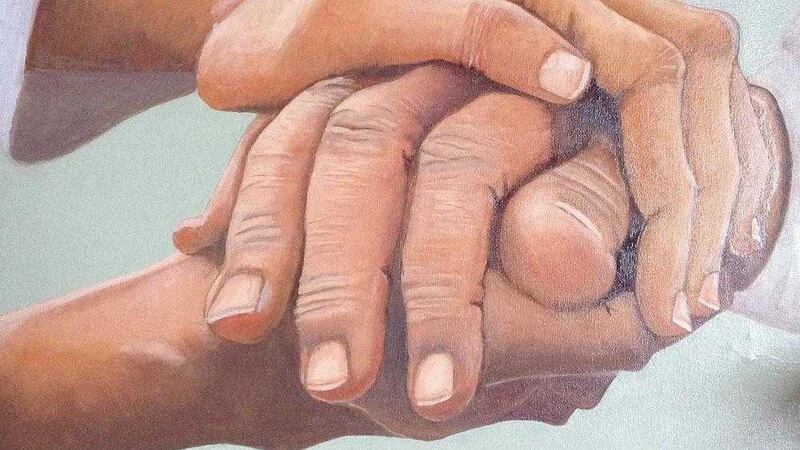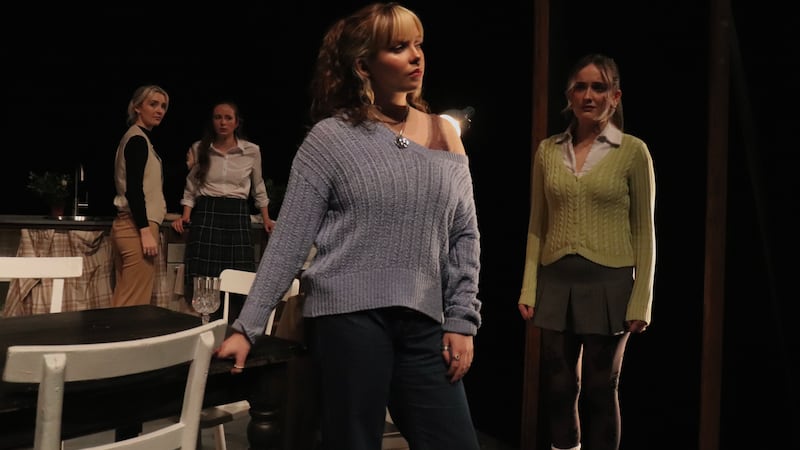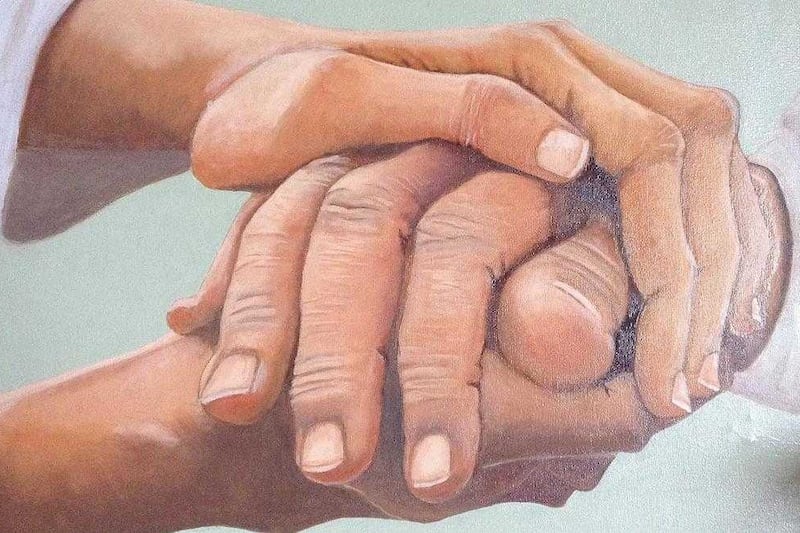THE only certain thing in life, is that it will one day, end.
Yet dying, death and loss remain social taboos that people often avoid talking about until they or a loved one are battling illness themselves.
A pilot project in Derry is hoping to refocus people's attitudes and responses to dying and life-limiting illnesses and by asking people to undertake small acts of compassion and thus enable all of us to live well within our communities to the very end of our lives.
Compassionate Communities is an internationally recognised approach to care for the dying. It evolved from the concept of Compassionate Cities developed by Professor Allan Kellehear, an Australian public health academic. He reminded us that end-of-life care isn't only about hospice and palliative care services, but also a social responsibility.
The need for compassionate communities comes from social and medical changes, including people living for longer with long term/chronic conditions including motor neurone disease, Parkinson's and cancer and more people living alone without family nearby.
The concept has been interpreted in many different ways by communities worldwide including Australia, Canada and India. Examples in Britain and Ireland are Severn Hospice’s CoCo initiative, Cheshire’s Living Well, Dying Well and Milford Care in Limerick.
Compassionate Communities North West is the first of its kind in the north of Ireland. Funded by the Health and Social Care Board End of Life Stream, they are establishing a compassionate neighbours scheme that links volunteers with those living with advanced illness and frailty to reduce social isolation and enable people to remain independently at home. The first seven volunteers, who provide friendship rather than domiciliary care, are currently being partnered, with further training ongoing.
Linda Morris, the project manager, knows from her own family how important companionship can be for someone who is frail and living with chronic illness.
"The reason I'm involved and applied for the job was because of my 84-year-old mum who lives in Liverpool," Linda says.
"She is pretty much housebound and has a number of chronic health conditions and although she has family nearby what keeps her going is her neighbour Joan who puts the paper through the door each morning and calls every other day with bread and milk and a bit of chat from the neighbourhood and just keeps mum connected. Really it's Joan that keeps mum going and I see the befriending aspect of compassionate communities as like setting up a network of Joan's."
Linda adds: "Passionate Communities is about recognising that for many people at the end of their lives, it's not their medical needs they need most but their psychological and emotional needs. We are trying to looking at the compassion that already exists within communities and helping people to mobilise that."
The other aspects of Compassionate Communities North West is creating networks with appropriate organisations, such as those providing bereavement care and also generally raising awareness citywide of attitude to end of life.
An art exhibition supported by the Public Health Agency, CLEAR Project, is one of two events being held in the city next month aimed at raising awareness of the impact of social isolation as a result of illness, death and loss. The second event is a conference entitled Tackling Frailty and End of Life through Community Resilience: A Public Health Approach to Living Well, on the February 18 at the Everglades Hotel. Already fully booked, it will feature a keynote address from Dr Alan Kelleher, the world pioneer of compassionate communities
Derry artists Mary McLaughlin, Catherine Duddy and Catherine Ellis are taking part in the exhibition One Day, which refers to the inevitable day everyone will face.
"Death is a natural part of life and there is no reason why the end of life doesn't deserve as much much beauty, care and respect as the beginning of life," says project support worker Sharon Williams.
"Until people are at that point where they are dealing with an illness and carer or they have been bereaved they can't empathise. The art exhibition is trying to help them put themselves in somebody else's shoes and go beyond that and see where they can actually help and be proactive."
In the exhibition, the artists look at various aspects of the compassionate communities project including befriending, time and walking in the shoes of those involved in palliative care.
Mary McLaughlin has produced a series of paintings on introductory handshakes and also a sculpture on the power of support.
"I work with recycled materials and I found with one particular sculpture, using wire and paper, I couldn't get the people to stand on their own. But once I put them together they were really strong and sturdy – which is sending out the message that together we can lean on one another and have a better environment," she says.
Working on the project challenged Mary in ways she didn't expect.
"You never know at what time in life you will be called and it has made me think that now when I'm fit and well I should start up something that I may need further down the line when I am ill."
Catherine Duddy brought a personal understanding to this project, as it enabled her to reflecting on her own battle with breast cancer in 2008.
"My own cancer was very daunting and made me realise the brevity of time and how special it was to be with your family," adds Catherine, who found the support from her family and community invaluable.
She is now hoping her own story and artwork will help others. "One of the pieces I'm working on is a larger scale version of a heart with strings being pulled. It has taken on so many meanings – from pulling on the heartstrings to living from the heart. I'm feeding it and the work is feeding me back."
:: The One Day exhibition at the Garden of Reflection Gallery, Bishop Street, Derry runs from February 11 to 25. For further information contact Sharon Williams on 028 7135 1010.



